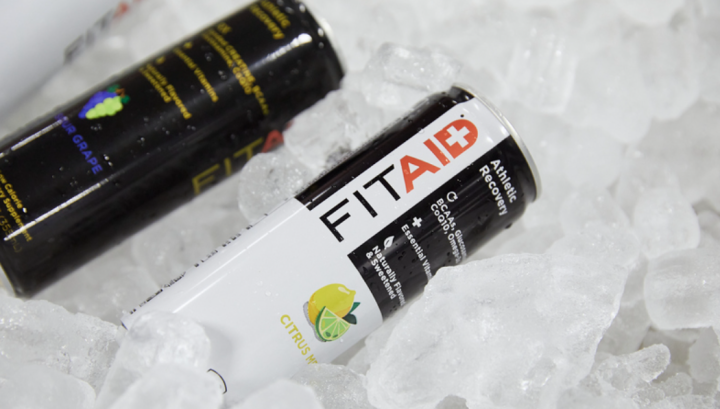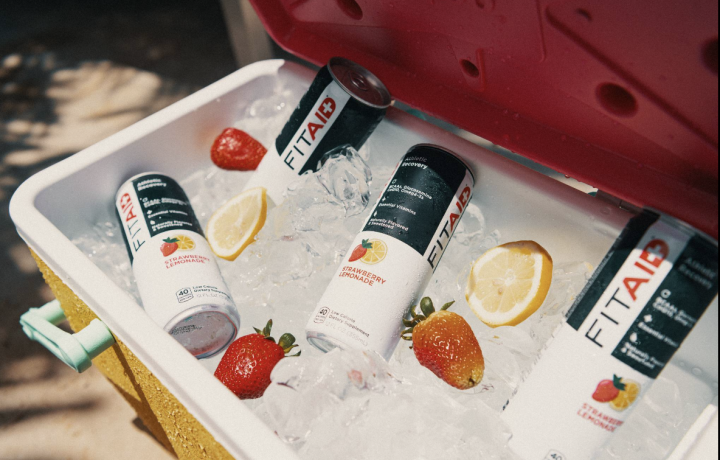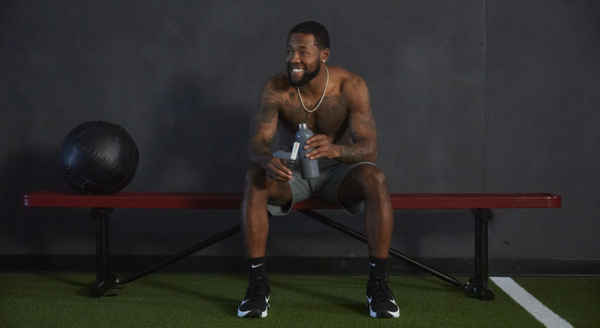HOT TOPIC: Heating pads for post-workout recovery.
The use of heating pads and heat therapy for post-workout recovery has been a topic of debate in the sports and fitness industry for some time. On one hand, heat therapy can provide relief from sore muscles and help improve blood flow, promoting healing and recovery. On the other hand, cold therapy is often recommended to reduce inflammation and swelling. To clear up some of the confusion, let’s examine 5 myths about heating pads and how they can be used in post-workout recovery. Myth 1: Heat is only useful for soothing pain and not for actual recovery.
This is a common misconception about heat therapy. While it is true that heat therapy can provide relief from pain, it also has a number of benefits for recovery. By increasing blood flow and relaxing tight muscles, heat therapy can help improve flexibility and reduce muscle stiffness. This can speed up the healing process and promote recovery after intense exercise.
Myth 2: Cold is better for sports recovery than heat.
While cold therapy may help reduce inflammation and swelling, it is not always the best choice for post-workout recovery. In some cases, cold therapy can actually slow down the healing process by reducing blood flow to the affected area. This is why heat therapy is often recommended as a complementary treatment to cold therapy, as it can help improve blood flow and promote recovery.
Myth 3: Heating pads are not effective for post-workout recovery.
Heating pads can be an effective tool for post-workout recovery, as long as they are used correctly. The key is to apply heat to the affected area for a sufficient amount of time to allow the muscles to relax and the blood flow to improve. This can be done using a heating pad or hot water bottle, and can be combined with other recovery strategies such as stretching, massage, and hydration.
Myth 4: You only need a heat blanket for post-workout recovery if you are injured.
While heat therapy can be helpful for recovery after an injury, it is also beneficial for anyone who engages in intense exercise. By promoting blood flow and reducing muscle stiffness, heat therapy can help prevent injury and improve overall recovery after exercise.
Myth 5: Heat therapy is only for older individuals or those with chronic pain.
While heat therapy can be particularly helpful for older individuals or those with chronic pain, it can be beneficial for anyone who exercises regularly. By improving blood flow and promoting relaxation, heat therapy can help anyone recover faster after intense exercise.
In addition to heat therapy, hydration and nutrition are critical components of post-workout recovery. FITAID drinks are a great option for post-workout recovery, as they contain no artificial sweeteners, and have clean caffeine from green tea extract. The vitamins in FITAID, such as turmeric, glucosamine, vitamin B12, and BCAAs, can help aid muscle recovery, improving joint health, and supporting muscle function.
To summarize, heat therapy can be a useful tool for post-workout recovery, as long as it is used correctly. By promoting blood flow and reducing muscle stiffness, heat therapy can help improve recovery after intense exercise. In addition to heat therapy, hydration and nutrition are critical components of post-workout recovery. FITAID drinks are a great option for post-workout recovery, as they contain no artificial sweeteners, and have clean caffeine from green tea extract. The vitamins in FITAID, such as turmeric, glucosamine, vitamin B12, and BCAAs, can help aid muscle recovery, improving joint health, and supporting muscle function.
Myth 1: Heat is only useful for soothing pain and not for actual recovery.
This is a common misconception about heat therapy. While it is true that heat therapy can provide relief from pain, it also has a number of benefits for recovery. By increasing blood flow and relaxing tight muscles, heat therapy can help improve flexibility and reduce muscle stiffness. This can speed up the healing process and promote recovery after intense exercise.
Myth 2: Cold is better for sports recovery than heat.
While cold therapy may help reduce inflammation and swelling, it is not always the best choice for post-workout recovery. In some cases, cold therapy can actually slow down the healing process by reducing blood flow to the affected area. This is why heat therapy is often recommended as a complementary treatment to cold therapy, as it can help improve blood flow and promote recovery.
Myth 3: Heating pads are not effective for post-workout recovery.
Heating pads can be an effective tool for post-workout recovery, as long as they are used correctly. The key is to apply heat to the affected area for a sufficient amount of time to allow the muscles to relax and the blood flow to improve. This can be done using a heating pad or hot water bottle, and can be combined with other recovery strategies such as stretching, massage, and hydration.
Myth 4: You only need a heat blanket for post-workout recovery if you are injured.
While heat therapy can be helpful for recovery after an injury, it is also beneficial for anyone who engages in intense exercise. By promoting blood flow and reducing muscle stiffness, heat therapy can help prevent injury and improve overall recovery after exercise.
Myth 5: Heat therapy is only for older individuals or those with chronic pain.
While heat therapy can be particularly helpful for older individuals or those with chronic pain, it can be beneficial for anyone who exercises regularly. By improving blood flow and promoting relaxation, heat therapy can help anyone recover faster after intense exercise.
In addition to heat therapy, hydration and nutrition are critical components of post-workout recovery. FITAID drinks are a great option for post-workout recovery, as they contain no artificial sweeteners, and have clean caffeine from green tea extract. The vitamins in FITAID, such as turmeric, glucosamine, vitamin B12, and BCAAs, can help aid muscle recovery, improving joint health, and supporting muscle function.
To summarize, heat therapy can be a useful tool for post-workout recovery, as long as it is used correctly. By promoting blood flow and reducing muscle stiffness, heat therapy can help improve recovery after intense exercise. In addition to heat therapy, hydration and nutrition are critical components of post-workout recovery. FITAID drinks are a great option for post-workout recovery, as they contain no artificial sweeteners, and have clean caffeine from green tea extract. The vitamins in FITAID, such as turmeric, glucosamine, vitamin B12, and BCAAs, can help aid muscle recovery, improving joint health, and supporting muscle function.

Here are some scientific articles that support the information discussed in the blog article: "Heat Therapy for Muscle Pain and Stiffness" by the National Institute of Arthritis and Musculoskeletal and Skin Diseases (NIAMS) - This article provides an overview of heat therapy, its benefits, and how it can be used to relieve muscle pain and stiffness.
"Heat Therapy and Exercise Performance" by the Journal of Strength and Conditioning Research - This study looked at the effects of heat therapy on exercise performance, and found that heat therapy can improve flexibility, reduce muscle stiffness, and enhance overall performance.
"The Effectiveness of Cold Therapy for Sports Injury" by the Journal of Athletic Training - This article provides a review of the scientific literature on the use of cold therapy for sports injury, and concludes that cold therapy can help reduce inflammation and swelling, but may not be the best choice for all types of injuries.
"The Role of Hydration and Nutrition in Post-Workout Recovery" by the Journal of the International Society of Sports Nutrition - This study highlights the importance of hydration and nutrition in post-workout recovery, and discusses the benefits of different recovery strategies such as hydration, nutrition, and heat therapy.
"The Benefits of Vitamin B12 for Muscle Recovery" by the Journal of the International Society of Sports Nutrition - This article discusses the benefits of vitamin B12 for muscle recovery, and how it can help support muscle function and reduce inflammation.
"The Benefits of Turmeric for Joint Health and Muscle Recovery" by the Journal of the International Society of Sports Nutrition - This study examines the benefits of turmeric for joint health and muscle recovery, and how it can help reduce inflammation and improve joint health.
